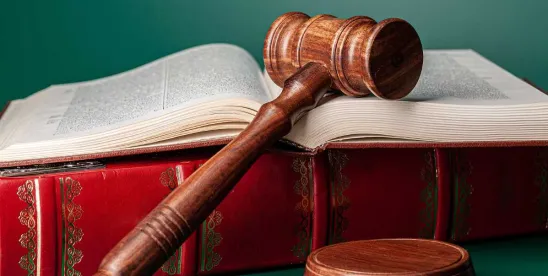Disputes between members of different branches of government frequently raise thorny issues—and standing is often one of them. The Maine Law Court tackled the issue of legislator standing in its recent decision in Clardy v. Jackson, its first pronouncement on the issue.
Some background: in 2024, partisan disputes over the state budget led to a simple majority vote in favor of the state budget in the Legislature. Under the Maine Constitution, the failure to achieve a two-thirds majority meant that the budget would become effective 90 days after adjournment of the Legislature (rather than immediately). To start that clock ticking as early as possible, the Speaker adjourned the Legislature. Invoking an “extraordinary occasion,” the Governor then called the Legislature back into special session the next day. Some members of the Legislature—among others—brought suit challenging the constitutionality of the special session.
The Law Court never reached the merits of the claim, which raised interesting issues relating to, among other things, the political question doctrine—when is a case nonjusticiable because it has been committed to another branch of government? (See Nixon v. United States). Instead, the Law Court resolved the case on standing grounds.
The Court’s discussion of legislators’ standing is notable. (This was an issue that the Court had declined to reach in another case presenting that issue, namely, Black v. BPL.) In Clardy, the legislators asserted a claim based on their being compelled to appear at the new session.
The Law Court declined to “decid[e] the outer limits of the ability of legislators to maintain a suit for declaratory relief against government actors,” but emphasized that legislators must “assert an actual, concrete injury arising from the defendants’ conduct.” The Law Court concluded that they had not done so. It reasoned that—contrary to their allegations—the legislators had not been deprived of the benefit of their votes to adjourn the regular session. The votes cast were valid and effective, the Court reasoned; instead, the Governor had simply re-convened the Legislature by invoking her separate and distinct authority to call the Legislature into session. Thereafter, the legislators retained the right to vote to adjourn again, or to vote against further legislation. The Court favorably quoted the Pennsylvania Supreme Court:
Legislative standing exists only when a legislator’s direct and substantial interest in his or her ability to participate in the voting process is negatively impacted, or when he or she has suffered a concrete impairment or deprivation of an official power or authority to act as a legislator.
The Court’s discussion calls to mind one of the seminal cases on the issue of legislator standing, Raines v. Byrd. In that case, the U.S. Supreme Court construed its prior precedent to recognize legislator standing in a narrow circumstance: when legislators’ “votes would have been sufficient to defeat (or enact) a specific legislative Act,” they have standing to sue “if that legislative action goes into effect (or does not go into effect), on the ground that their votes have been completely nullified.” The Supreme Court, like the Law Court, found that there was no standing because the legislators’ votes had been given “full effect”; they “simply lost that vote.” The Supreme Court articulated a hesitance to engage in “amorphous general supervision of the operations of government” through the judicial process. It appears that the Law Court shares that concern.



 />i
/>i
